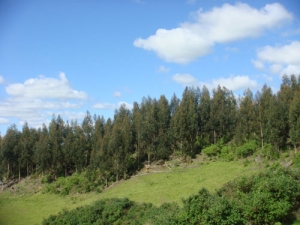Editorial: New Treeland?
OPINION: Forestry is not all bad and planting pine trees on land that is prone to erosion or in soils which cannot support livestock farming makes sense.
 Forest operations will continue in Nelson and Marlborough forests during summer, except when the fire risk is at its highest.
Forest operations will continue in Nelson and Marlborough forests during summer, except when the fire risk is at its highest.
Forest operations will continue in Nelson and Marlborough forests during summer, except when the fire risk is at its highest.
Andrew Karalus, estate manager for Nelson Management Ltd, says providing continuous work is important for those working in the industry and it enables the industry to attract and retain highly skilled people.
"It's a trade-off to some extent. The risk of fire can never be totally eliminated, but there are probably 1500 people working in forests in the region who rely on year-round work for their livelihoods. Then there are the servicing firms, the trucking companies and wood processors – there are a lot of locals who rely on a steady wood flow for their income."
Karalus says the weather conditions that led to the recent Parsons Rd, Wairau Valley fire were not unusual. The fire risk at the time was code blue – midway on the five step code – so the outbreak and its severity came as a surprise.
"For 15 years we have been successfully operating without any major fires under conditions where the fire risk has been much more severe than we have had so far this summer. We will learn more from the latest events and we are tapping into expert advice to find out what happened and to improve our controls."
He says the forest fire danger codes, which were developed as a collaboration between the forest industry and two Rural Fire Authorities have been under review for six months. The codes have been found to be quite sound. However more work needs to be done to respond to the conditions under which a fire is more likely to start and spread.
"Typically, in a drought such as we had last summer, we reach conditions of code red. We don't have anyone felling or working in the cut-over forest during the heat of the day. Smoking and fires are of course totally banned. After crews leave for the day, someone stays behind to check that the site is completely safe and nothing develops into a fire," Karalus says.
"More challenging is the highly changeable weather we are experiencing at present, where periods of high-risk come and go during the day. We need to be able to identify when this is happening and respond quickly to avoid fire starts."
The National Wild Goat Hunting Competition has removed 33,418 wild goats over the past three years.
New Zealand needs a new healthcare model to address rising rates of obesity in rural communities, with the current system leaving many patients unable to access effective treatment or long-term support, warn GPs.
Southland farmers are being urged to put safety first, following a spike in tip offs about risky handling of wind-damaged trees
Third-generation Ashburton dairy farmers TJ and Mark Stewart are no strangers to adapting and evolving.
When American retail giant Cosco came to audit Open Country Dairy’s new butter plant at the Waharoa site and give the green light to supply their American stores, they allowed themselves a week for the exercise.
Fonterra chair Peter McBride says the divestment of Mainland Group is their last significant asset sale and signals the end of structural changes.

OPINION: Your old mate welcomes the proposed changes to local government but notes it drew responses that ranged from the reasonable…
OPINION: A press release from the oxygen thieves running the hot air symposium on climate change, known as COP30, grabbed your…